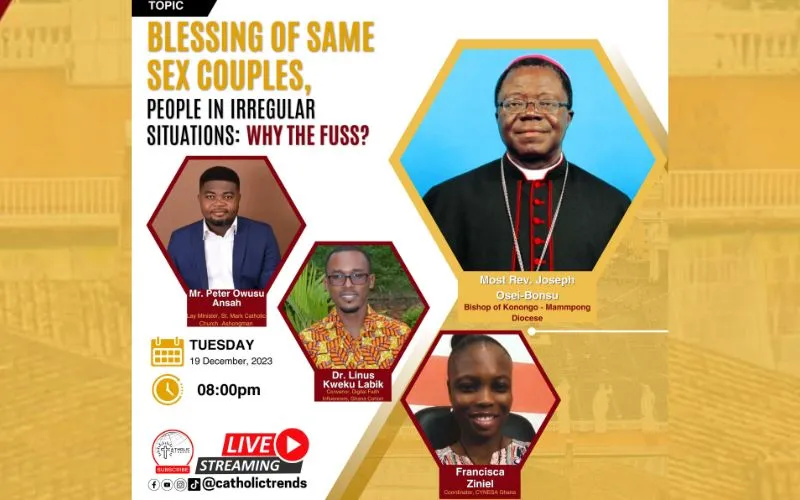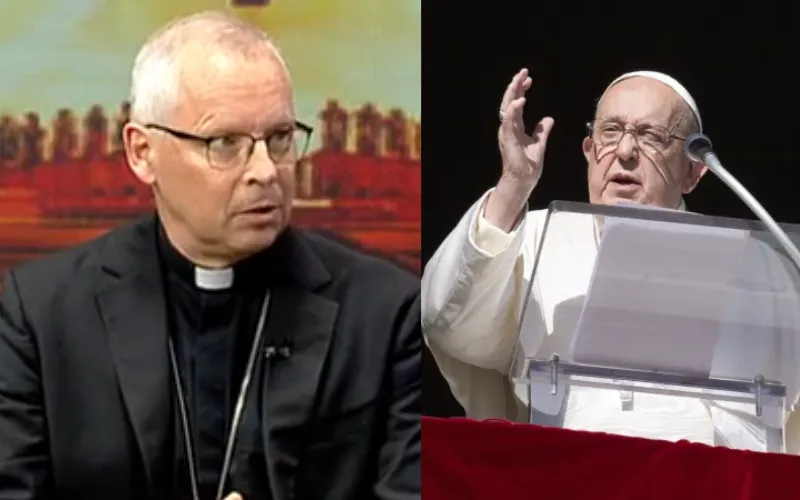Konongo-Mampong, 19 December, 2023 / 9:35 pm (ACI Africa).
A day after the release of Fiducia Supplicans, the Monday, December 18 Vatican declaration on the blessing of “same-sex couples” and couples in other “irregular situations” released by the Dicastery for the Doctrine of Faith (DDF), a Catholic media entity in Ghana organized a discussion that sought “to create more clarity” on the declaration.
According to Dr. Linus Kweku Labik, a panelist at the webinar and member of the African Digital Youth Faith Influencers (ADYFI), many Catholics are engaging in arguments about the Vatican declaration without first taking their time to understand it.
In a Tuesday, December 19 interview with ACI Africa, hours before the panel discussion, Dr. Kweku said that the webinar aimed at creating “more clarity” on the Vatican declaration by dissecting it, pointing out contentious parts in it and discussing them.
“We have organized a general discussion to explain the document broadly, and to point out and weigh in on parts that seem to be contentious,” he said, and added, “We understand that not many people have had the opportunity to read the document. This will therefore be an opportunity for them to interact with it.”
During the webinar, the Coordinator the Catholic Youth Network for Environmental Sustainability in Africa (CYNESA) in Ghana, Fransica Ziniel, said that the Vatican declaration “was not news to me.”








